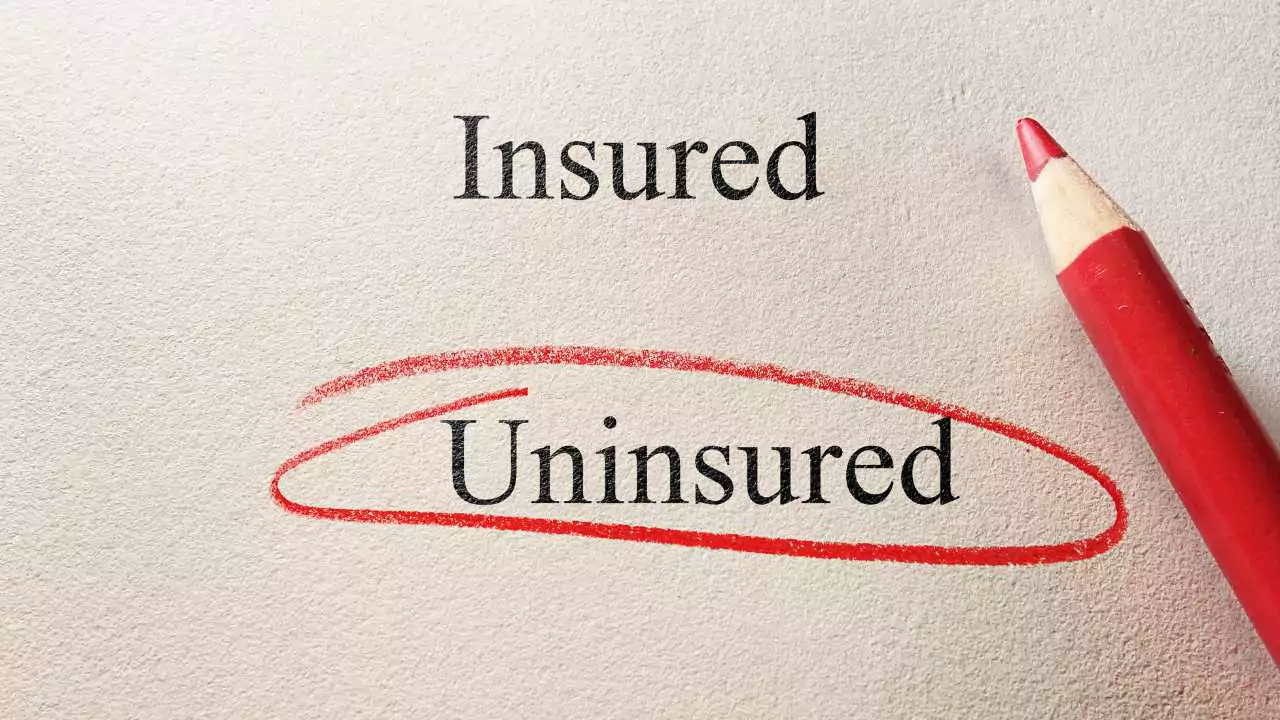Getting into an accident with another driver is stressful enough. But what happens if the driver who caused the accident doesn’t have insurance? In these situations, insurance companies have ways to try and recoup their losses, but your options for recovering damages might be limited.
Uninsured Drivers: Understanding the Risks
Unfortunately, uninsured drivers are a common problem on the road. According to the Insurance Research Council, one in eight drivers in the US were uninsured in 2019. This means there’s a significant chance you could be involved in an accident with someone who can’t pay for the damages they cause.
There are several reasons why drivers might be uninsured. Some may struggle to afford car insurance, while others might intentionally drive without it. Regardless of the reason, it creates a major risk for everyone on the road.
Enforcing mandatory insurance laws can be challenging, and some states have higher rates of uninsured drivers than others. Additionally, not all accidents are covered by uninsured motorist coverage, which we’ll discuss further below.
What Happens After an Accident with an Uninsured Driver
If you’re in an accident caused by an uninsured driver, the first step is to report the accident to the police and exchange information with the other driver. Then, you’ll need to contact your insurance company and file a claim.
Filing a Claim Against the Uninsured Driver:
Your insurance company might attempt to collect payment directly from the uninsured driver. However, the success rate of this approach can be low, especially if the driver doesn’t have a job or any assets. In some cases, your insurance company might have an entire department dedicated to collecting these debts, but they may not prioritize claims for smaller amounts.
Seeking Reimbursement Through Subrogation:
If your insurance company pays for your damages, they might have the right to subrogate. This legal principle allows them to step into your shoes and sue the uninsured driver to recover the money they paid out on your behalf. While this can be a way for your insurance company to recoup their losses, it doesn’t guarantee that you’ll be fully compensated. Collecting from the driver can be difficult, especially if they don’t have any income or assets.
Options if the Defendant Cannot or Will Not Pay Damages:
If the at-fault driver has no assets or simply refuses to pay, your options become more limited. You might be able to garnish their wages or place a lien on their property, but this process can be lengthy and frustrating. It’s important to consult with an attorney to understand the feasibility of these options in your specific situation.
Your Options and Rights as a Victim
While recouping damages from the uninsured driver can be challenging, you still have options:
Utilizing Uninsured Motorist Coverage:
Most insurance companies offer uninsured motorist (UM) coverage as an optional add-on. This coverage kicks in if you’re in an accident caused by an uninsured driver and helps pay for your medical bills, lost wages, and car repairs. Having UM coverage is crucial for protecting yourself financially in the event of an accident with an uninsured driver. Be sure to check your policy limits, as they may not cover the entirety of your damages.
Seeking Compensation Through First-Party Bad Faith Claims:
If your insurance company denies your UM claim unfairly, you might be able to sue them for bad faith. This means they acted in a way that goes against the terms of your insurance contract and put their own interests ahead of yours. For instance, they might deny your claim based on flimsy evidence or fail to properly investigate the accident. Bad faith claims are complex legal matters, and consulting with an attorney is crucial. An attorney can assess your situation and determine if you have a strong case against your insurance company.
The Importance of Consulting with a Car Accident Attorney:
An experienced car accident attorney can help you navigate the legal complexities of dealing with an uninsured driver. They can advise you on your rights, explore all available options, and fight for the compensation you deserve. An attorney can help you deal with your insurance company, negotiate a fair settlement, and represent you in court if necessary. They can also help you understand the time limits for filing claims, which can vary by state.
In conclusion, while insurance companies can pursue uninsured drivers, recovering damages isn’t always guaranteed. Having uninsured motorist coverage is crucial, and consulting with an attorney can make a significant difference in protecting your rights after an accident. Don’t hesitate to seek legal help to ensure you get the compensation you deserve.





